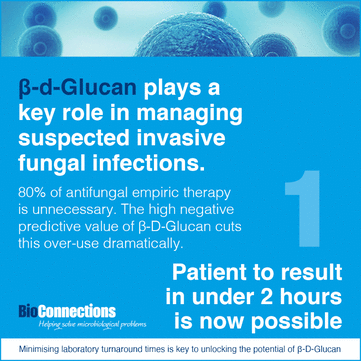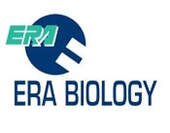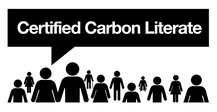Antifungal Stewardship Library
|
How Long is Too Long?
Fungal biomarker turn-around-Time (TAT) and antifungal stewardship. FIS 2018 A median turn-around time of 1-2 weeks significantly devalues the use of fungal biomarkers These are from posters presented at a meeting in Aberdeen in October 2021 relevant to rapid fungal diagnostics & antifungal stewardship.
P356 - A retrospective review of the AFS at Leicester. Absolute antifungal expenditure showed an annual decrease of £320,600 P222 - A multi-site evaluation of antifungal use- implications for AFS. ''β-D-glucan utilization is greatest when turn-around-time is shortest'' P062 - Introduction of β-D-glucan testing. Based on bringing 256 tests in-house there was a saving of £75,000 in therapy. |
Antimicrobial Stewardship from Policy to Practice:Experiences from UK Antimicrobial Pharmacists
Despite the low incidence of invasive fungal infections compared to bacterial infections, for some specialist centers antimicrobial expenditure is dominated by antifungal use. Antifungal stewardship initiatives are gaining momentum in the UK at present with pharmacists driving the agenda. One such program has suggested savings of approximately £180,000 over a 12-month period by rationalizing and reviewing therapies, while another two programs found stepping down and stopping unnecessary empiric therapy was common. |
An investigation of antifungal stewardship programmes in England
- 'There is an urgent need to improve across many diagnostic areas including the timely accessibility of/to fungal biomarkers and susceptibility testing.'
- 'Clinicians say: lack of diagnostic tests or long TAT's of tests is a main issue when managing patients with suspected invasive fungal infections.'
Pharmacodynamics of Isavuconazole for Invasive Mold Disease: Role of Galactomannan for Real-Time Monitoring of Therapeutic Response 2017
The ability to make early therapeutic decisions when treating invasive aspergillosis using changes in biomarkers as a surrogate for therapeutic response could significantly improve patient outcome.
The ability to make early therapeutic decisions when treating invasive aspergillosis using changes in biomarkers as a surrogate for therapeutic response could significantly improve patient outcome.
An antifungal stewardship programme (AFS) is designed to reduce empirically prescribed antifungal treatments and improve patient care.
The availability of rapid diagnostics and in-house EUCAST broth microdilution will help create an AFS programme.
The availability of rapid diagnostics and in-house EUCAST broth microdilution will help create an AFS programme.
- The automation of β-D-Glucan testing by the FACIS system has made daily testing with a TAT of 2 hours feasible for all laboratories. β-D-Glucan is a key biomarker that has a significant impact on the empiric prescription of antifungals .
NHS Antifungal Stewardship Implementation Pack - Version: 0.7 June 2019
This pack provides information and guidance to support the local implementation of this Improving Value initiative . A local implementation project can use the guidance contained within this pack to guide successful implementation.
This pack provides information and guidance to support the local implementation of this Improving Value initiative . A local implementation project can use the guidance contained within this pack to guide successful implementation.
Impact of a diagnostics-driven antifungal stewardship programme in a UK tertiary referral teaching hospital. Published JACSept 2018
The AFS programme was successful in reducing the number of inappropriate initiations of antifungals by 90%. Concurrently, mortality due to invasive candidosis was reduced by 58%. BOG testing can guide safe cessation of antifungals in ICU patients at risk of invasive candidosis.
The AFS programme was successful in reducing the number of inappropriate initiations of antifungals by 90%. Concurrently, mortality due to invasive candidosis was reduced by 58%. BOG testing can guide safe cessation of antifungals in ICU patients at risk of invasive candidosis.
|
Effectiveness of an antifungal stewardship programme at a London teaching hospital 2010-16 Published JAC January 2019
'Empirical treatment was often unnecessary, with 82% having no evidence of IFI. Advice was given in 64% of reviews (most commonly de-escalating or stopping treatment) and was followed in 84%.' |
Antifungal stewardship in critical care: Implementing a diagnostics-driven care pathway in the management of invasive candidiasis Published June 2020
'Although adopting a diagnostics-driven approach was found to be useful in the cohort of patients with BDG results available, the use of once-weekly BDG testing did not result in an observed reduction in the consumption of anidulafungin , highlighting an important limitation of this approach.'
'Although adopting a diagnostics-driven approach was found to be useful in the cohort of patients with BDG results available, the use of once-weekly BDG testing did not result in an observed reduction in the consumption of anidulafungin , highlighting an important limitation of this approach.'
An Evaluation of Beta D-Glucan Testing as an Antimicrobial Stewardship Tool in a Tertiary Referral Hospital FIS poster 2020
Conclusion: BDG testing contributes to the improved diagnosis of fungal infections and a negative BDG has value as an AMS tool. 72 negative results contributed to the avoidance or cessation of antifungal therapy with a clear cost saving.
Conclusion: BDG testing contributes to the improved diagnosis of fungal infections and a negative BDG has value as an AMS tool. 72 negative results contributed to the avoidance or cessation of antifungal therapy with a clear cost saving.
https://www.bsac.org.uk/antimicrobialstewardshipebook/BSAC-AntimicrobialStewardship-FromPrinciplestoPractice-eBook.pdf





